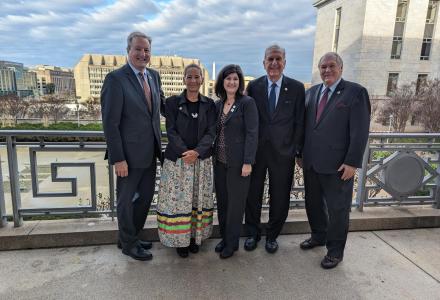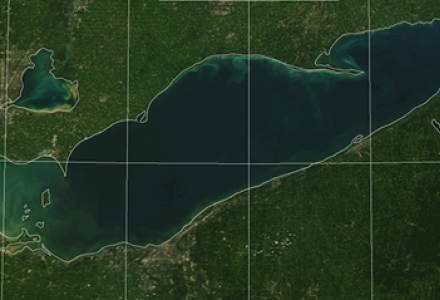The Canada-Ontario Agreement on Great Lakes Water Quality and Ecosystem Health is the means by which Canada and Ontario interact to help meet federal obligations under the Canada-U.S. Great Lakes Water Quality Agreement. An eighth Canada-Ontario Agreement (COA), signed in December, sets the agenda for restoration, protection and conservation of the Canadian portion of the Great Lakes basin for the next five years.
The Canada-Ontario Agreement is signed by seven federal ministries and three Ontario ministries, all of which have a role to play in achieving the shared vision of a healthy, prosperous and sustainable Great Lakes for present and future generations.
The COA, first signed in 1971, is a year older than the Great Lakes Water Quality Agreement. Since its first signing, the COA has been an important mechanism for coordinating efforts to improve water quality in the Great Lakes on the northern side of the border. The Canada-Ontario Agreement has changed over time, reflecting changes in the Great Lakes Water Quality Agreement and priority Canadian issues.
The focus of the first COA was to control discharges of phosphorus in municipal sewage. Subsequent COAs focused on chemical pollution, runoff from urban and agricultural lands and remediation of degraded spots in the Great Lakes known as Areas of Concern.

The key commitments in the eighth COA are set out in Annexes, which specify goals, results and commitments.
Ten of the 14 COA annexes correspond to the 10 annexes of the Great Lakes Water Quality Agreement.
Four additional annexes unique to COA address promoting innovation, engaging communities, engaging First Nations and engaging Métis. These annexes are aimed at increasing and sustaining the social and economic well-being of the people who live in the Canadian portion of the Great Lakes watershed and creating opportunities for them to become involved in the restoration, protection and conservation of the Great Lakes.
Full text of latest COA can be found on the Environment Canada website.
People living in the Great Lakes region can look forward to seeing how the commitments in the updated agreement are turned into specific products, actions and opportunities in the coming months and years.

Jack Darling Memorial Park, Mississauga, on Lake Ontario. Credit: Joe deSousa

Cindy Warick Policy Adviser Windsor Office



